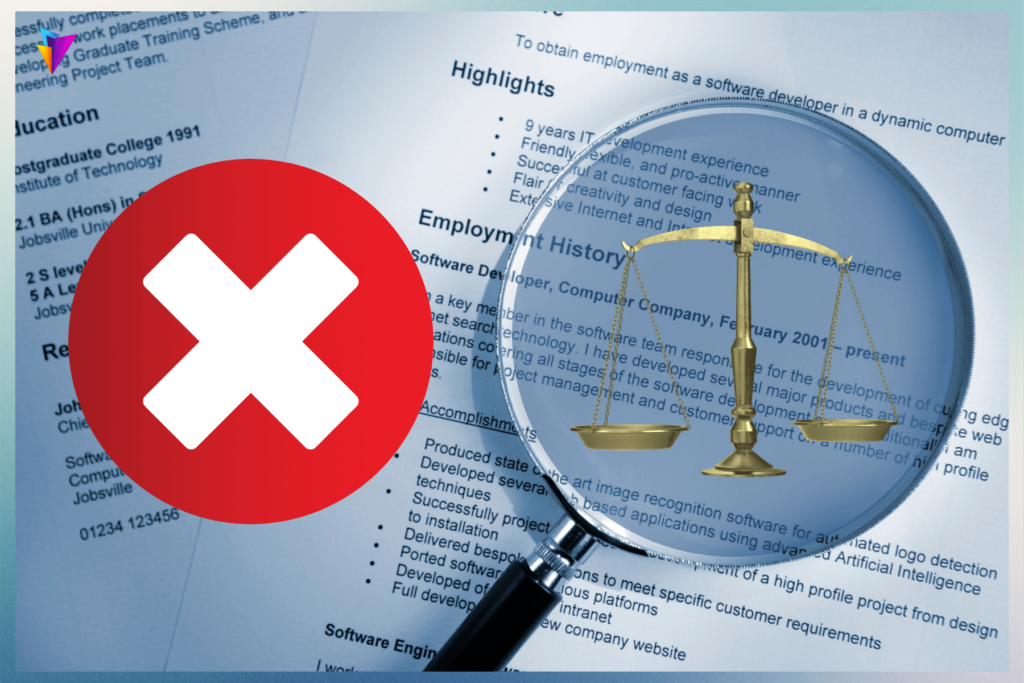Educational background plays a major part in hiring decisions, often shaping employer perceptions of a candidate’s abilities and potential. However, does the prestige of an institution truly determine career success, or does it contribute to systemic bias? This article explores how educational bias affects hiring, the impact of institutional prestige, and alternative methods to create a fairer, more inclusive recruitment process.
How Institutional Prestige Influences Hiring Decisions and Leads to Educational Bias
Certain educational institutions carry a prestigious reputation, and graduates from these schools often enjoy advantages in the job market. However, relying too heavily on a candidate’s alma mater can create barriers to workplace diversity and limit access to equal opportunities.
1. Brand Recognition and Prestige
- Employers tend to favor candidates from prestigious universities due to the perception that these institutions produce highly skilled graduates.
- Top-tier universities are associated with rigorous admissions processes, leading to the assumption that their graduates are naturally more talented or capable.
- Studies indicate that graduates from Ivy League schools and elite institutions often receive more job offers and higher starting salaries than their peers from lesser-known universities.
2. Exclusive Networking Opportunities
- Alumni networks from prestigious institutions provide significant advantages in job searching.
- These networks offer access to exclusive job postings, mentorship programs, and industry connections that may not be available to graduates from other schools.
- The social capital gained from attending a prestigious institution can open doors that remain closed to equally talented candidates from less recognized universities.
3. Perception of Higher-Quality Education
- Employers often believe that graduates from elite institutions receive a superior education and are better prepared for professional roles.
- This assumption can ultimately lead to a bias in candidate selection, overlooking applicants who may have gained equally valuable skills and knowledge elsewhere.
- Research has shown that on-the-job performance and practical experience often outweigh academic prestige, yet many hiring managers still rely on university reputation as a hiring criterion.
How Educational Bias Limits Workplace Diversity
Focusing on institutional prestige over practical skills and experience can have significant consequences for workplace diversity, inclusion, and innovation.
1. Homogeneous Workforces Due to Educational Bias
- Hiring primarily from a select group of universities can result in a lack of diversity in perspectives, experiences, and problem-solving approaches to stop educational bias.
- A study by Harvard Business Review found that companies and organizations with diverse teams are 35% more likely to outperform competitors due to the variety of viewpoints and creative solutions.
2. Inequity in Career Opportunities
- Candidates from underrepresented groups often face socioeconomic barriers to attending elite universities.
- Educational bias perpetuates workplace inequality by limiting opportunities for talented individuals who could contribute fresh ideas and skills.
- A hiring process that prioritizes prestige over potential disproportionately excludes candidates from minority, low-income, and first-generation college backgrounds.
3. A Narrow Talent Pool
- Employers that prioritize prestigious degrees over skills and experience risk overlooking highly capable candidates.
- Many skilled professionals graduate from lesser-known universities or alternative education programs but possess the same—if not more—competencies required for a role.
- Relying too much on institutional branding reduces opportunities to hire candidates with real-world experience and problem-solving abilities.
4 Ways to Evaluate Candidates Beyond Their Alma Mater
To combat educational bias, employers should focus on a skills-first hiring approach rather than making assumptions based on a candidate’s alma mater.
1. Implement Skills-Based Assessments
- Employers can use practical assessments to evaluate candidates based on their actual capabilities and skills rather than their university pedigree.
- Google and other leading tech companies have shifted toward skills-based hiring, prioritizing problem-solving abilities and technical skills over educational prestige.
- Performance tasks, case studies, and job simulations can help identify top talent regardless of their academic background.
2. Adopt Blind Recruitment Practices
- Blind recruitment involves removing identifiable information such as educational background and personal details from resumes during the initial screening stage.
- Studies show that blind hiring leads to more diverse recruitment outcomes by reducing unconscious bias in candidate evaluations.
- Employers should focus on work experience, skills, and competencies instead of institutional prestige.
3. Create Inclusive Job Descriptions
- Job descriptions should focus on required skills and experience rather than specifying particular universities or degrees.
- Avoid phrasing that implies a preference for elite schools, such as “Preferred candidates from Ivy League or top-tier institutions.”
- Encouraging applications from diverse backgrounds fosters an inclusive workplace culture and attracts a broader talent pool.
4. Invest in Continuous Learning and Development
- Companies that prioritize ongoing employee training can bridge skill gaps and provide growth opportunities for candidates from various educational backgrounds.
- Employers should offer mentorship programs, professional certifications, and in-house training to nurture talent internally.
- Studies show that companies investing in employee learning and development have higher retention rates and improved workforce engagement.
Conclusion: Moving Beyond Institutional Prestige in Hiring
Educational bias in hiring reinforces inequality, limits diversity, and narrows access to top talent. By recognizing the impact of institutional prestige and implementing alternative candidate evaluation strategies, employers can build a fairer, more inclusive workforce.
Shifting the focus from where candidates studied to what they can do will not only expand the talent pool but also drive greater innovation, creativity, and workplace success. Embracing skills-based hiring, blind recruitment, inclusive job descriptions, and continuous learning opportunities will enable organizations to attract diverse, high-performing professionals from all educational backgrounds.










